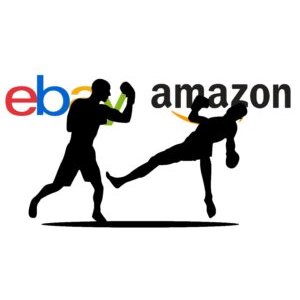In the world of online commerce, Amazon and eBay stand out as the two dominant players. While both platforms offer a diverse range of products to shoppers, each has its own strengths and weaknesses when it comes to selling used items. Despite eBay’s advantages, such as detailed item descriptions, the ability to take best offers and run auctions, and a seller-centric fee structure, there are some areas of concern that warrant criticism.
One of the main issues with eBay is its high final value fees (13.5% plus $.30 per order) in most categories, which can make selling used electronics prohibitively expensive for small sellers looking to turn a profit on used goods. This creates a significant challenge for individuals who wish to sell used electronics as they are often forced to compete against larger businesses who may be able to absorb the high fees better. eBay’s fee structure is geared more towards sellers who are established or those who can sell in higher volume and are able to negotiate lower fees. Moreover, eBay’s simpler fee structure no advantageous for small sellers and as sellers grow larger, eBay negotiates fees with them, which further impedes the ability for new smaller sellers to compete. The high final value fees combined with the lack of leverage for smaller sellers are contributing factors to why Amazon may be a more attractive option for businesses selling new products, especially in higher volumes. Despite these criticisms, eBay still has an advantage over Amazon when it comes to the sale of used items. eBay’s platform allows for greater flexibility in pricing and selling strategies, such as the ability to take best offers or run auctions. This provides a more dynamic marketplace for sellers to adjust their strategies and respond to market demands. In conclusion, while eBay may have some issues, such as high final value fees and a disadvantage for smaller sellers when negotiating fees, but the platform still has a more to offer in the sale of used items. Its detailed item descriptions, simpler fee structure, and flexible selling strategies make it an attractive platform for individuals looking to sell unique or one-off items. However, for businesses selling large quantities of standardized products, Amazon may be a better fit due to its focus on fast distribution and larger product listings. What about selling on Facebook Marketplace? That discussion is for another day.


Comments are closed